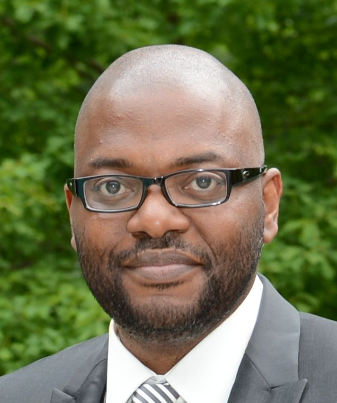
Chembo, Yanne
Director, Institute for Research in Electronics and Applied Physics
Institute for Research in Electronics & Applied Physics
EDUCATION
- Habilitation in Engineering, University of Franche-Comté, France (2011)
- Ph.D., Photonics, University of the Balearic Islands, Palma de Mallorca, Spain (2002-2006)
- Ph.D., Nonlinear Dynamics, University of Yaounde I, Cameroon (2001-2005)
BACKGROUND
Professor Yanne Chembo joined the Department of Electrical and Computer Engineering in January 2019, with a joint appointment in the Institute for Research in Electronics and Applied Physics (IREAP). Prior to joining the UMD Faculty, he was a Research Director at the French National Center for Scientific Research (CNRS). There, he led a research group focused on the exploration of nonlinear, quantum and stochastic phenomena in optoelectronics, microwave photonics, and laser physics.
In 2006, Chembo received a PhD degree in photonics from the University of the Balearic Islands (Palma de Mallorca, Spain), and previously, an independent PhD in nonlinear dynamics from the University of Yaounde I (Cameroon).
In 2007 and 2008, he was a postdoctoral fellow with the FEMTO-ST Institute in Besançon, France. In 2009, he was a NASA Postdoctoral Program (NPP) Fellow at the Quantum Science and Technology Group of the Jet Propulsion Laboratory, Caltech (Pasadena, California, USA). From 2010 to 2016, he worked for CNRS (Centre National de la Recherche Scientifique) in France, with affiliation to the FEMTO-ST Institute where he founded and led the Microwave Photonics Group for Aerospace and Communication Engineering. In 2017, he joined the Georgia Tech-CNRS International Joint Laboratory in Atlanta, Georgia, USA. He has co-authored around 200 articles in refereed international journals and international conference proceedings.
He was a member of the Committee for Regional Development of the International Commission for Optics (ICO) from 2014 to 2017, an Associate Vice-President for the IEEE Photonics Society Membership Council (2016-2019), an Associate Editor for the OSA Journal Optics Express (2016-22022), and a board member of the organization commitee for the UNESCO International Year of Light (IYL 2015).
He is an elected member of the IEEE Photonics Society (IPS) Board of Governors.
HONORS AND AWARDS
- Fellow of the International Society for Optics and Photonics (SPIE)
- Fellow of the Optical Society of America (OSA)
- Fellow of the American Physical Society (APS)
- Nonlinear, quantum and stochastic phenomena in optoelectronics, microwave photonics, and laser physics
- Applications to aerospace systems, optical communications, time-frequency metrology, signal detection and sensors